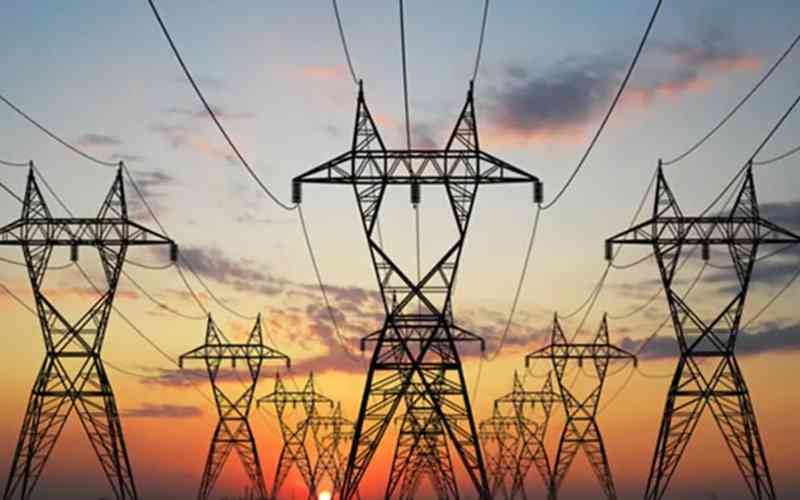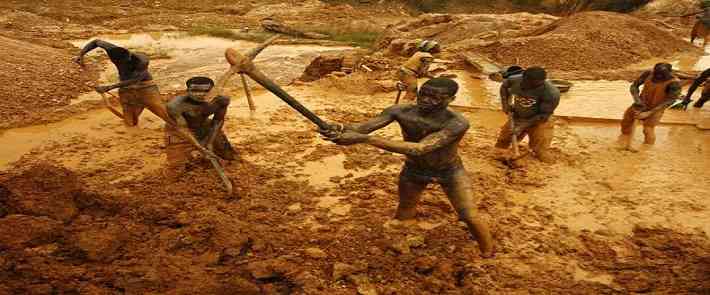
IGNITE news evening bulletin carried a startling, if not shocking, headline on March 20, 2024.
“Zesa urges mines to build own power stations," read the banner.
The story referred to Zesa's acting chief executive officer, Eliab Chikwenhere testifying before the parliamentary portfolio committee on energy and power development, on March 19 2024.
As if unaware of Zesa's legal and technical mandates, social and economic obligations, the senior official told the committee that Zesa was projecting electricity demand to rise to a peak of 3 500 MW in 2025, from around 2 000 MW in 2024.
Both figures are above Zesa's current power generation capacity of around 1 300 MW.
The 2025 data was derived from applications for power supplies submitted by current and future mining operations, in particular ferro-chrome producers.
This prompted the state-owned Zesa to beg these current and future customers to build their own power stations, and presumably, excuse Zesa from the burden of having to sell electricity to these important customers.
How very incompetent can one get?
- Slaughter of impounded goats barbaric
- Africa needs national CCTV technology policies
- All set for gender-responsive budgeting summit
- Moroccan airline cancels flights to Qatar
Keep Reading
In the private sector, or in countries with effective governments, the official should have been relieved of his duties that same day before getting back to head office.
Even now, the Zesa works council, not to mention the board of directors, must ask the official to step aside.
But do not bank on it.
This is Zimbabwe. This is Africa.
His strategy may be deemed politically correct by capital providers, in particular the vocal and arrogant international finance institutions (IFIs).
On ideological grounds, they do not like state-owned enterprises (SOEs).
The official may have subconsciously succumbed to neo-colonial intellectualism, a cult that has captured many debt cornered governments in Africa.
SOEs do not need such managers or directors.
Zesa, and all SOEs, need better managers, who are independent thinkers and not only business suave. They must be both technically and financially literate.
Public expectations
It may, of course, be that the officer was misquoted, mischievously, or out of context. If that is the case, then the Zesa board should issue a statement.
The parliamentary portfolio committee, and the public at large, expected to hear the following from the acting CEO:
Reason(s) why Zesa has been losing generating capacity over the past "20 to 40 years of failure", as opposed to increasing capacity by an average of at least 5% to 10% annually, as would be expected from both the population increase and economic. Growth perspectives for the country over the period.
More important to hear would have been how these impediments to increasing power generation have been, or should be dealt with or removed.
How the Zesa re-capitalisation or balance sheet repair was being, or going to be addressed. The opportunity to create a special purpose vehicle (SPV) to house Zesa's new thermal power plants, Hwange 7 & 8, and list the entity on the Victoria Falls Stock Exchange (VFEX) and the Johannesburg Stock Exchange (JSE), in an Initial Public Offering (IPO) should have been ventilated.
The money raised could be used to reduce Zesa's off-shore debt, whilst the debt free SPV would be in a position to borrow up to US$1 billion, and use the proceeds to build another 300MW thermal power station (Hwange 9), and a 300 MW solar power station (Zuva 1).
This proposal would have gone some way to address the mining sector concerns. Some in the sector have enough financial clout to invest huge sums in the IPO provided they are assured of world class management and corporate and public governance from the top drawer, plus, of course, globally competitive tariffs for at least the next four to five decades.
The Wicknell Chivayo Intratek deal, in which Zesa disbursed US$5 million, also needed to be addressed. The nation wants to know whether the US$5 million paid to Intratek will be recovered soon.
The acting CEO also bragged about Zesa signing contracts with Dinison of Manhize Iron & Steel Works for the Chinese multinational corporation (MNC) to build two renewable energy power stations - a solar and a wind one.
The stench of death
Following the controversy surrounding the Intratek deal, how can the nation be assured the Zesa management and directors have the interest of the country and the strategic SOE at heart?
At the moment, the Procurement Regulatory Authority of Zimbabwe (Praz), the Accountant General and the attorney General (or a reputable Public Auditor representing all three) should sign off, after taking advice of a reputable engineering consultant, all Zesa's major contracts and agreements.
Of course this is unnecessary bureaucracy if you have a competent board of directors and world class management team in place.
Above are just but a few issues the acting CEO should have touched on, given the rare opportunity to interact with law makers.
Other matters to do with debt collection, service quality, infrastructure repairs, maintenance and renewals, manpower training, and worker welfare and morale needed to be heard.
If that was done and the issues were aired, let Zesa say so.
That is how important this SOE is.
It looks like its management and directors do not know that. And the stench of its death is in the air, as, no doubt, the parliamentary committee concluded after listening to the Zesa official.
Without reliable, affordable and adequate power supplies, let it be said, there is no Vision 2030!
Parliament's function neglected?
Reading the article it is easy to speculate that the portfolio committee slept through the testimony in blissful ignorance of the important matter at hand and of its own constitutional obligations that also demand probity in the discharge of the mandate.
Had the committee been alive to its task the acting CEO would have been in for a serious dressing down.
Instead, the officer may have been applauded as he waltzed off the stage.
Such a scenario would be tantamount to serious neglect of duty by the legislators, warranting a recall of the lot from the August House.
Legislators’ key function is to provide wise counsel to government and oversight on the executive branch of the state in the execution of its executive branch's key functions.
Administrative control
Among these functions, the ones of close relevance to the utility are the following:
Sound management of public finances.
Provision of infrastructure services, and, (optimal) management of public assets.
From the online newspaper story, none of these four key functions can be said to be receiving adequate attention from the authorities.
Zesa is rudderless.
There is virtually no captain on the bridge.
Conclusion
It can be concluded, therefore, that neither the executive nor the legislature is fit for purpose.
That begs the question: Where to next comrades? The answer, of course, lies in sovereign intellectual and industrial capability.
Casting our eyes, not only to the east, but also to the north, west and south, it becomes obvious state capitalism, (as championed by China, and as practiced in Rhodesia and apartheid South Africa) works, and works very well.
What is more, it can live happily, side by side, with capitalism (as championed by the United States, and echoed loudly by the IFIs. The blend of ideologies is what Zimbabwe, the Southern African Development Community and East African Community need. It is on display in China today, as it is in the United Arab Emirates, Saudi Arabia and France.
May the authorities, SOEs managers and directors be guided accordingly.
Nyandoro is a pharmacist with a B. Pharmacy (Hons) from the University of Zimbabwe, 1980. These weekly New Perspectives articles, published in the Zimbabwe Independent, are coordinated by Lovemore Kadenge, an independent consultant, managing consultant of Zawale Consultants (Pvt) Ltd, past president of the Zimbabwe Economics Society and past president of the Chartered Governance & Accountancy Institute in Zimbabwe. — kadenge.zes@gmail.com or +263 772 382 852.






